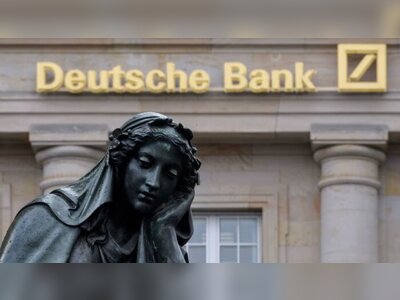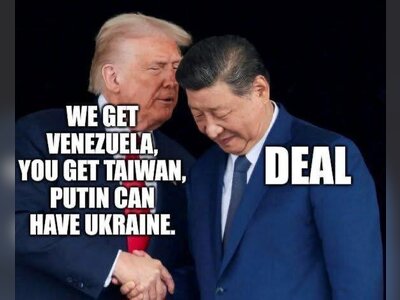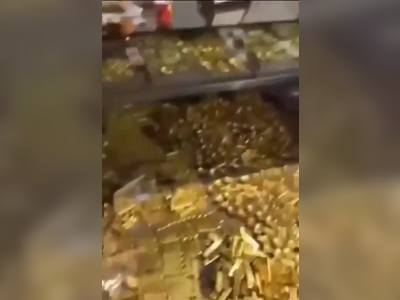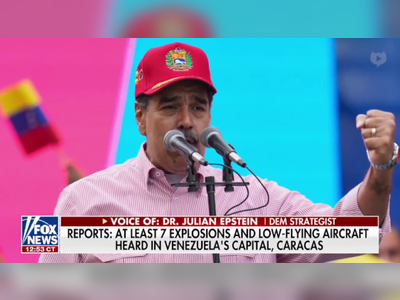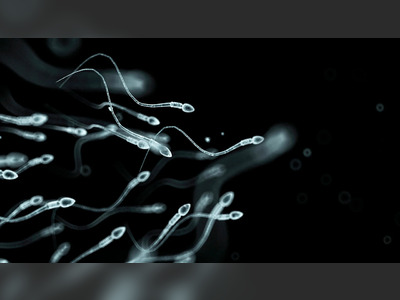Alcohol-Free Wines Spark a New Revolution in Bordeaux
Combining tradition with innovation, alcohol-free wines spark discussions in France's renowned wine regions as consumer preferences evolve.
In the revered vineyards of Bordeaux, a subtle revolution is taking place—one that challenges age-old winemaking traditions.
Alcohol-free wines, once considered heretical by traditionalists, are now emerging as a credible alternative due to changing consumer tastes and economic pressures.
Frédéric Brochet, a leading Bordeaux oenologist, is spearheading this change.
His Moderato collection demonstrates the significant progress made in crafting enjoyable non-alcoholic wines.
"We were producing something quite subpar," Brochet admits openly.
"But we have made substantial progress.
Today, we are getting closer to our goal.
I believe it will revolutionize the wine world."
The growing acceptance of alcohol-free wines was underscored by the recent opening of Bordeaux’s first dedicated alcohol-free _cave_, Les Belles Grappes, run by Alexandre and Anne Kettaneh.
"We only opened four weeks ago, and already local wine-growers are inquiring about the non-alcohol market," Kettaneh notes.
These growers, who have traditionally resisted change, are starting to recognize market demands.
A number of factors are propelling this shift.
In France, domestic wine consumption continues to decline, aggravated by an unstable international market, largely due to changes in Chinese imports and potential new U.S. tariffs.
At the same time, younger generations are leaning towards non-alcoholic drinks, influenced by health trends and lifestyle choices that value wellness over tradition.
Significantly, the technology behind de-alcoholizing wine has advanced greatly.
Whereas earlier methods relied on boiling off alcohol—often ruining the wine's quality—new techniques such as low-temperature vacuum distillation are opening new possibilities.
These methods preserve the wine’s genuine aromas and flavors, offering them appeal among discerning consumers.
Fabien Marchand-Cassagne from Moderato acknowledges the differences in taste, especially with reds.
"We can't yet claim to fully replicate the complete mouth-feel," he explains.
"But you do get a genuine wine experience.
Bouquet, tannins, fruits, balance—it’s all there to enjoy."
Some estates are experiencing real benefits.
At Clos De Bouard near Saint-Emilion, Coralie de Bouard notes that a third of her sales come from non-alcoholic variants.
Initially, her venture into alcohol-free wines caused familial and industry upset; her family stopped speaking to her for a year.
"But now my father congratulates me and calls me the locomotive of the wine train," she reflects.
Her success is significant amid tough times for winemakers.
Critics, like Bernard Rabouy of the Bordeaux Families cooperative, recognize the need for evolution in a changing market.
"For purists, accepting this has been very difficult.
But we must adapt.
The fact is that customers aren't where they used to be.
We have to reach them, or they will go elsewhere."
Supporters argue that alcohol-free wines democratize the wine experience, allowing non-drinkers previously excluded from wine-centric social gatherings to participate.
Anne Kettaneh sees this as a way to revitalize communal dining traditions.
"And today, the only way we can do that is if non-alcoholic wines become part of the culture."
Brochet encapsulates the movement as part of the natural, historical evolution of winemaking, comparing it to technological innovations like the barrel and cork.
"As [poet] Paul Valéry said—what is tradition, but an innovation that succeeded?"
This embrace of non-alcoholic wines shows a broader willingness to adapt while maintaining the cultural essence that defines French viticulture.
As these pioneers forge ahead, the dialogue between traditionalists and pragmatists will undoubtedly continue to shape the future of winemaking in France and beyond.
Alcohol-free wines, once considered heretical by traditionalists, are now emerging as a credible alternative due to changing consumer tastes and economic pressures.
Frédéric Brochet, a leading Bordeaux oenologist, is spearheading this change.
His Moderato collection demonstrates the significant progress made in crafting enjoyable non-alcoholic wines.
"We were producing something quite subpar," Brochet admits openly.
"But we have made substantial progress.
Today, we are getting closer to our goal.
I believe it will revolutionize the wine world."
The growing acceptance of alcohol-free wines was underscored by the recent opening of Bordeaux’s first dedicated alcohol-free _cave_, Les Belles Grappes, run by Alexandre and Anne Kettaneh.
"We only opened four weeks ago, and already local wine-growers are inquiring about the non-alcohol market," Kettaneh notes.
These growers, who have traditionally resisted change, are starting to recognize market demands.
A number of factors are propelling this shift.
In France, domestic wine consumption continues to decline, aggravated by an unstable international market, largely due to changes in Chinese imports and potential new U.S. tariffs.
At the same time, younger generations are leaning towards non-alcoholic drinks, influenced by health trends and lifestyle choices that value wellness over tradition.
Significantly, the technology behind de-alcoholizing wine has advanced greatly.
Whereas earlier methods relied on boiling off alcohol—often ruining the wine's quality—new techniques such as low-temperature vacuum distillation are opening new possibilities.
These methods preserve the wine’s genuine aromas and flavors, offering them appeal among discerning consumers.
Fabien Marchand-Cassagne from Moderato acknowledges the differences in taste, especially with reds.
"We can't yet claim to fully replicate the complete mouth-feel," he explains.
"But you do get a genuine wine experience.
Bouquet, tannins, fruits, balance—it’s all there to enjoy."
Some estates are experiencing real benefits.
At Clos De Bouard near Saint-Emilion, Coralie de Bouard notes that a third of her sales come from non-alcoholic variants.
Initially, her venture into alcohol-free wines caused familial and industry upset; her family stopped speaking to her for a year.
"But now my father congratulates me and calls me the locomotive of the wine train," she reflects.
Her success is significant amid tough times for winemakers.
Critics, like Bernard Rabouy of the Bordeaux Families cooperative, recognize the need for evolution in a changing market.
"For purists, accepting this has been very difficult.
But we must adapt.
The fact is that customers aren't where they used to be.
We have to reach them, or they will go elsewhere."
Supporters argue that alcohol-free wines democratize the wine experience, allowing non-drinkers previously excluded from wine-centric social gatherings to participate.
Anne Kettaneh sees this as a way to revitalize communal dining traditions.
"And today, the only way we can do that is if non-alcoholic wines become part of the culture."
Brochet encapsulates the movement as part of the natural, historical evolution of winemaking, comparing it to technological innovations like the barrel and cork.
"As [poet] Paul Valéry said—what is tradition, but an innovation that succeeded?"
This embrace of non-alcoholic wines shows a broader willingness to adapt while maintaining the cultural essence that defines French viticulture.
As these pioneers forge ahead, the dialogue between traditionalists and pragmatists will undoubtedly continue to shape the future of winemaking in France and beyond.














